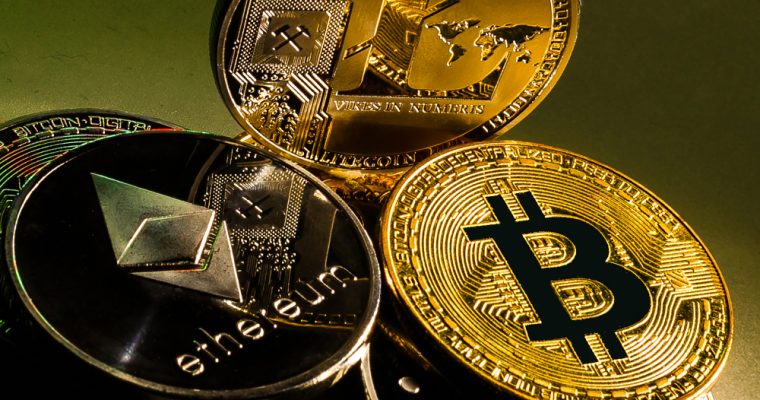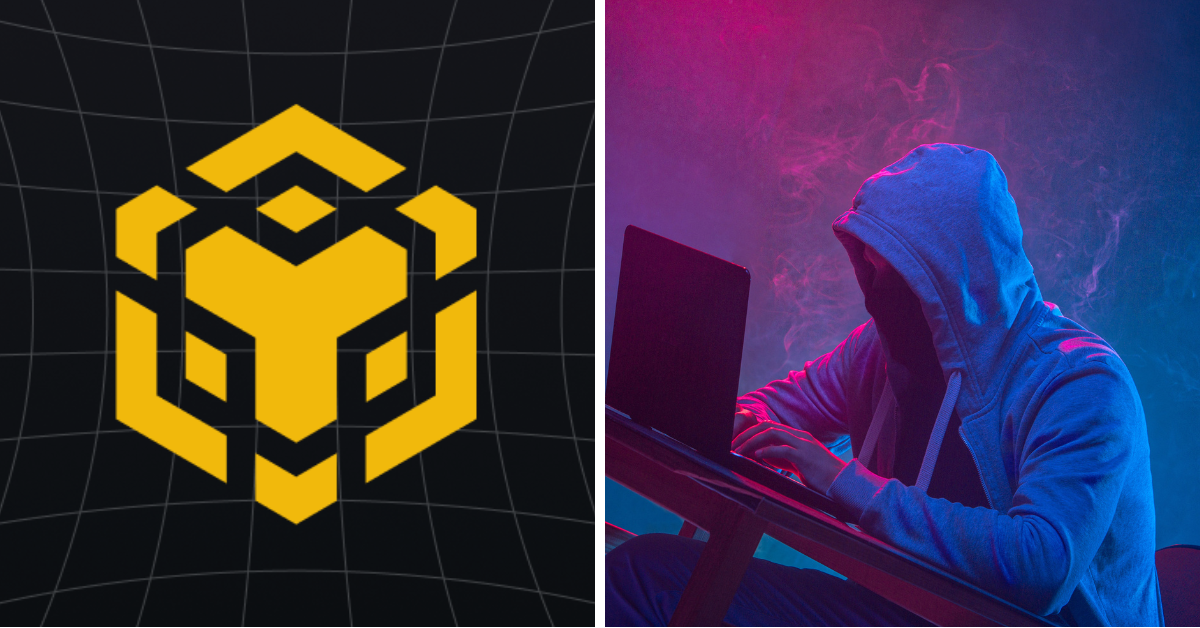Comment: Grin's problem is not privacy at all, but no one uses it.
Source of this article: block rhythm
Author: 0x22 0x29
Grin, who just appeared at the beginning of this year, did not have a good year.
Or, for the investors of Grin, the performance of this project known as "the next generation of bitcoin" is not as expected. The investor was just slap in the face after being fed a sweet date.
- Former director of the Central Bank Financial Research Institute: Calling for the first test of digital currency in Dawan District
- Messari Research Report: A detailed explanation of the way encryption assets are issued
- The Monroe core team issued a security warning: the CLI binary file was corrupted and the user had to check it in time
On November 18th, Ivan Bogatyy, a researcher at cryptocurrency investment fund Dragonfly Capital, said that the MimbleWimble protocol has been found to have serious flaws and is capable of decrypting 96% of transactions on the Grin network, with the remaining 4% being cracked by running a node network or a single supernode.
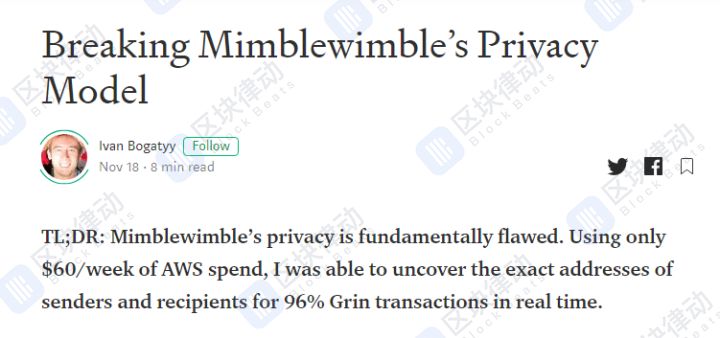
Privacy trading is one of Grin's biggest selling points and the biggest motivation for Grin to be used. Grin is based on a privacy agreement called Mimblewimble. The parties using Grin will not be discovered by others, nor will they see the transaction amount, which is safer than bitcoin transfers.
When Grin was launched, the market sentiment was the worst at the beginning of 2019, but the block rhythm BlockBeats tried to build a Grin community with more than two thousand members. It is no exaggeration to say that Grin was the hottest project at the time.
When asked about an engineer station Grin or Beam who was buried in DApp development all the time, he said that he didn't know about Beam because everyone around him was concerned about Grin and said that he would take the desktop computer out of mine after a few days. "I might dig into the early bitcoin."
Also because of Grin, privacy has become a hot track this year, and all the privacy transactions launched this year have received much attention. Even Ethereum founder V God has emphasized the importance of privacy transactions for Ethereum on Twitter.
But according to Ivan Bogatyy, Grin can't be an anonymous network at all. Users using Grin for privacy transfer can not only be cracked, but the probability of cracking is extremely high, almost 100%. In other words, he believes that Grin's most important privacy protection feature is a display.
A year ago, he once questioned Grin.
Ivan Bogatyy was a partner at Metastable Capital and was responsible for ML and NLP at Google AI, helping Ethereum to fix large-scale smart contract vulnerabilities. It can be said that it has a wealth of technology and investment experience.
This is not his first "black" Grin, BlockBeats found that, a year ago, Ivan Bogatyy posted on the MimbleWimble-related Reddit section, saying "MimbleWimble transactions can be linked through any archive node" and in the forum Ask yourself if this understanding is correct.
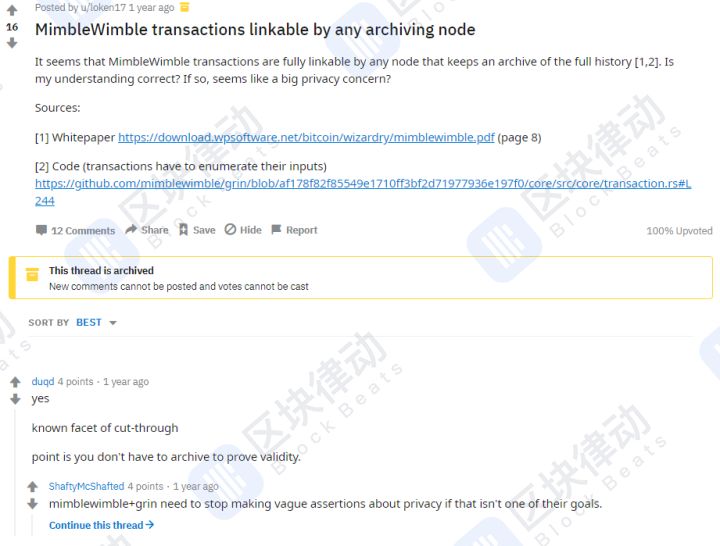
Within an hour after Ivan’s November 18th announcement, V God poured a bucket of oil on the fire. He gave a comment on Twitter. He believes that only zero knowledge proves that global anonymous sets such as ZK-SNARKs can truly guarantee privacy. It implies that the MimbleWimble protocol and other privacy protection schemes set a specific range of anonymous sets do not have real Robustness.
One is an investment institution research institute with rich technical experience and background, and the other is the founder of the famous Ethereum. When the two people do not recognize the same project, the expression of the investor can be imagined.
After the news was fermented, the user's psychology was quickly reflected in the price, and Grin fell 10% in 24 hours.
50 BTC donations can't reproduce Bitcoin
You know, Grin's investors have just been happy for a few days. BlockBeats has reported that on November 12th, the Grin team received another 50 bitcoin donations worth more than $400,000. "It feels like 2009/2010 again", anonymous donors leave a message and hope to "please put it to good use for the development of GRIN."
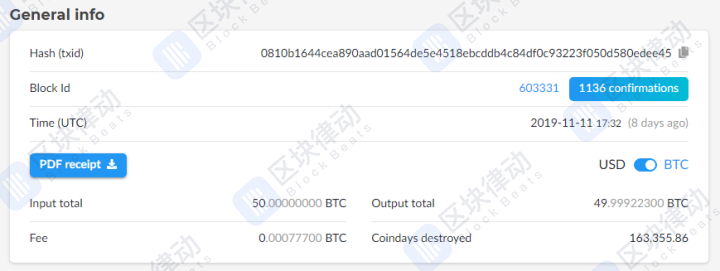
The timestamps of the 50 bitcoin sender addresses are shown on November 25, 2010. Many people therefore speculate that the donor is an early bitcoin believer. Litecoin founder Li Qiwei even thinks this is the bitcoin inventor Nakamoto. Donated money.
Is Grin the next more anonymous bitcoin? "It's a perfect meme." Being recognized by Nakamoto's early followers, Grin boarded the hot search. In the following two days, Grin quickly rose more than 50% and led other privacy-related blockchain projects to rise.
No one expected that the plot would "reverse" after a week.
This is not the first time the Grin story has been reversed. Grin started out, really with a bitcoin aura.
Earlier this year, Grin and Beam, launched at almost the same time, are based on the Pomble project of the Mimblewimble Privacy Agreement. However, the degree of attention of the two communities is obviously different. There is no pre-excavation, no ICO, and even no investment. Grin, which only relies on community donations to maintain development, has received more attention.
At the beginning of 2019, when Grin's main network was not online, the block rhythm BlockBeats recognized Grin's philosophy and then published an article about the Grin mining tutorial and helped the team maintain the Grin Chinese community. Unexpectedly, when the market was at the peak of the bear market, Grin's community actually attracted 2,000 people.
A project that no one can profit in advance has caused such a big concern. There is no other reason, just because no one can make a profit in advance. In other words, this project is extremely fair. Even in order to make the distribution of tokens more dispersed, Grin designed the algorithm and resisted ASIC for the first two years, which greatly mitigated the impact of the mining machine on decentralization.
However, fans also defined Grin as "early bitcoin" and did not have the imaginary success.
Initially, Grin's minimum required graphics card had 8G video memory, the most popular GTX1070ti on the market at the time. The price of this card was 2,500 RMB. According to this requirement, ordinary gamers will have the opportunity to dig out the block at home with this configuration computer. However, the mining pools have thought of ways to modify the mining system so that the professional mine card P106-100 can also dig Grin. This kind of card is not useful for ordinary people to buy. It can't be used as a graphics card, but the mining pool that specializes in mining is very popular, and the cost is greatly reduced. On the occasion of the mine disaster, a second-hand P106 mine card is only 300-500 yuan on the second-hand trading platform.
The addition of the mining pool caused Grin's computing power to skyrocket, completely changing the fair atmosphere that Grin had originally envisaged. Ordinary users with the 1070ti high-profile graphics card could not dig up. Two P106 mine cards cost 600 yuan, and the computing power adds up to the power of 1070ti of 2,500 yuan. People want to get Grin, it is basically impossible to dig themselves, or they have to go to the mining pool, join the mining pool and pay the handling fee to get a part of Grin.
In this era, the use of bitcoin to copy the scenes of early Bitcoin has been falsified by Grin.
Failed to realize the early bitcoin that everyone can mine, many potential investors have lost confidence, and one of Grin's most important selling points has not been successful. Now, privacy transactions have also been smashed.
This time the Grin developer countered.
Grin’s most deadly problem is not the destruction of privacy protection
On November 19th, Daniel Lehnberg, developer of MimbleWimble/Grin, dismissed this statement. He said in his blog that "the claim to decipher the MimbleWimble privacy agreement is not true." The article mentions not "fundamental inherent flaws." The so-called attack and cracking is a misunderstanding of known limitations.
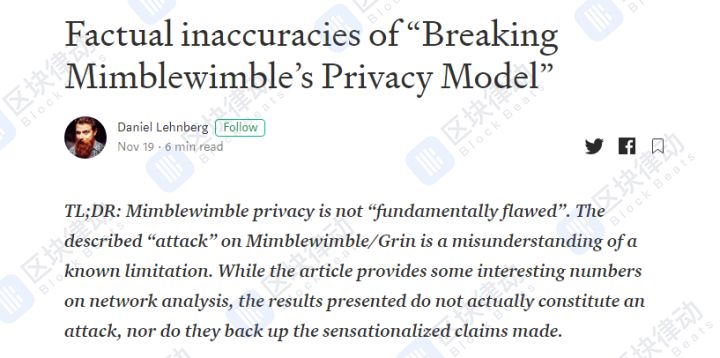
Daniel Lehnberg retorted that there is no concept of an address in MimbleWimble, and it is even more difficult to connect to an address that does not exist. The original author does not realize that the transaction graph does not display information about the party, and there is no amount of information to distinguish the output.
To put it simply, he thinks that Ivan hasn't cracked Grin. Purely the title party, Grin's private transaction doesn't reveal the identity of both parties to the transaction, it has always been.
Ivan then responded to questions from the Grin team and the community, who mentioned that the purpose of the study was to "break the privacy model (that is, undermine the assumption of user privacy protection) rather than undermine the privacy agreement, which is quite another matter." He said that the problems with Grin now need to be known to potential users and need to be fixed by the Grin team in order to make the privacy protection cryptocurrency more widely used.
Technically, developers have different opinions and are normal. At the time when the EOS main network had not yet started, V God and EOS founder Daniel Larimer often reciprocated and had mutual questions. It’s just a different view of developers about a particular technology.
However, Grin has a more deadly problem than fairness and anonymity, which was acknowledged in Daniel's response: no users.
He mentioned that Grin's current network usage is low, with 30% of the nearest 1000 blocks, and 22% containing only one transaction, which means their input and output can be slightly deciphered. This situation will not change until the network usage increases.
A network that relies on a small number of people to achieve privacy in most people. If there is no majority, how can it be perfect privacy?
Technical issues are never a problem, and the bigger problem facing the blockchain is business. In an industry where users are slow to grow and difficult to get started, how to argue with the two big Vs will not help. For blockchain practitioners, finding users is the top priority.
We will continue to update Blocking; if you have any questions or suggestions, please contact us!
Was this article helpful?
93 out of 132 found this helpful
Related articles
- Non-joint office: Be wary of illegal fund-raising in the name of the blockchain
- Interview with David Marcus: Bitcoin's failure in payment has spawned Libra
- Community Perspectives | Reflections on the MOV patrol officer system
- Research | Bitcoin mining and video games: Who consumes more power?
- Observation | China blockchain builds a peak in global public opinion
- Views | Next vent: More DAO than Token
- Encrypted wallet MoA v1.0 officially released, three features make digital asset adoption easier




